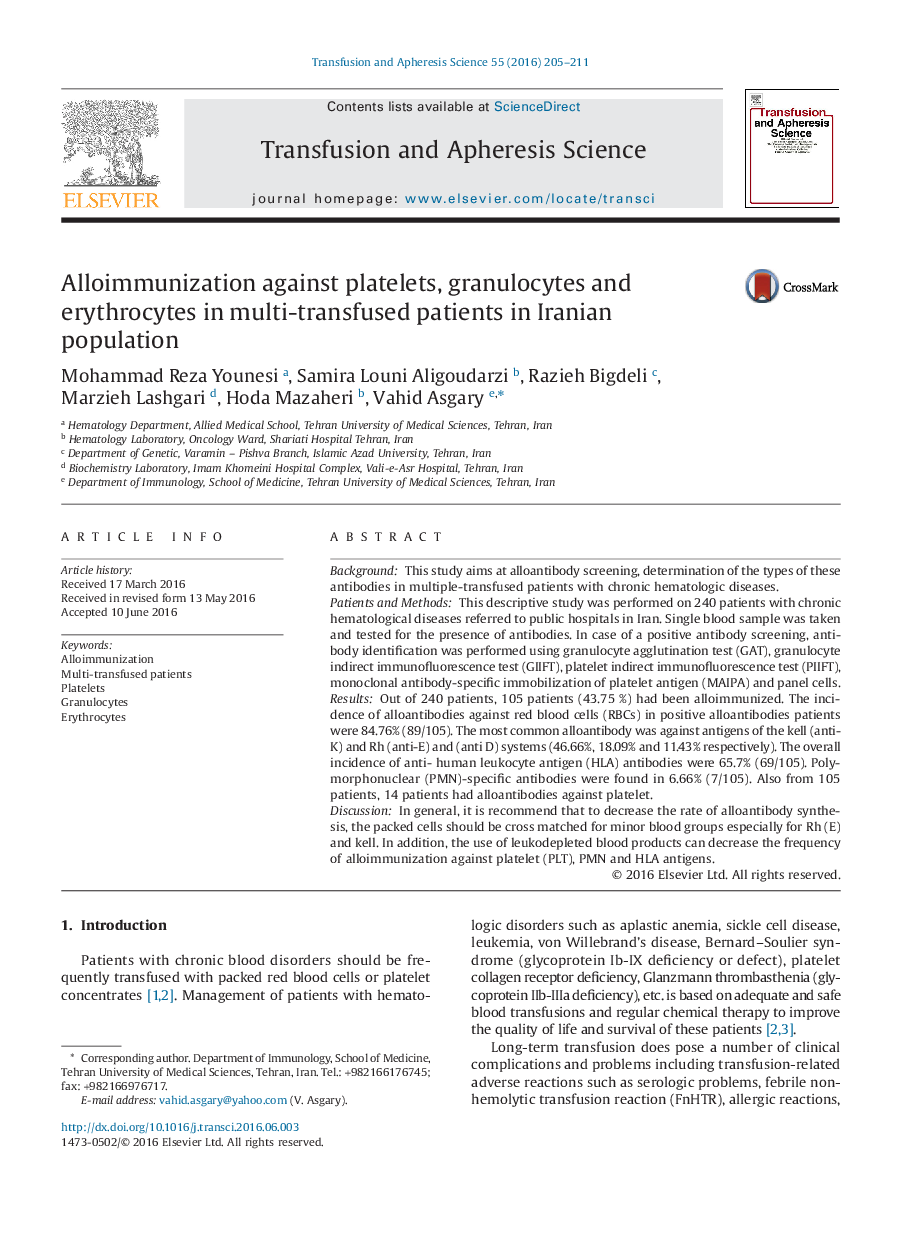| Article ID | Journal | Published Year | Pages | File Type |
|---|---|---|---|---|
| 5664745 | Transfusion and Apheresis Science | 2016 | 7 Pages |
BackgroundThis study aims at alloantibody screening, determination of the types of these antibodies in multiple-transfused patients with chronic hematologic diseases.Patients and MethodsThis descriptive study was performed on 240 patients with chronic hematological diseases referred to public hospitals in Iran. Single blood sample was taken and tested for the presence of antibodies. In case of a positive antibody screening, antibody identification was performed using granulocyte agglutination test (GAT), granulocyte indirect immunofluorescence test (GIIFT), platelet indirect immunofluorescence test (PIIFT), monoclonal antibody-specific immobilization of platelet antigen (MAIPA) and panel cells.ResultsOut of 240 patients, 105 patients (43.75 %) had been alloimmunized. The incidence of alloantibodies against red blood cells (RBCs) in positive alloantibodies patients were 84.76% (89/105). The most common alloantibody was against antigens of the kell (anti-K) and Rh (anti-E) and (anti D) systems (46.66%, 18.09% and 11.43% respectively). The overall incidence of anti- human leukocyte antigen (HLA) antibodies were 65.7% (69/105). Polymorphonuclear (PMN)-specific antibodies were found in 6.66% (7/105). Also from 105 patients, 14 patients had alloantibodies against platelet.DiscussionIn general, it is recommend that to decrease the rate of alloantibody synthesis, the packed cells should be cross matched for minor blood groups especially for Rh (E) and kell. In addition, the use of leukodepleted blood products can decrease the frequency of alloimmunization against platelet (PLT), PMN and HLA antigens.
